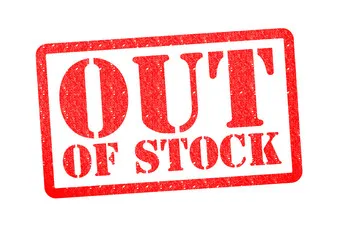Why does the replenishment process fail?
Isn’t it a poor experience when your favourite store runs out of stock of your favourite product? That is exactly how all customers feel when their most-trusted retail chain has no stock of their desired product. Leaving a bitter impression on these customers could lead to losing their business forever. On the contrary, excessive stock results in blocked resources and high costs for maintenance. Retailers incur huge losses in either of the cases. This makes replenishment one of the most crucial aspects of the retail business.
There are a few reasons for retail businesses to be unable to set up the replenishment process right. Read on to learn about these reasons.
1. Poorly Maintained Data
Data is the most crucial factor for setting up an accurate replenishment process. Retailers need to track inventory movement, product shelf life, product lifetime, sales trends, sales during promotions, and much more. With zero or minimum maintenance of all this data, retailers could face various challenges in replenishing stock timely or accurately.
Accurate data is the backbone of a successful replenishment strategy. It allows retailers to forecast demand accurately and make informed decisions. For example, by analysing historical sales data, a retailer can predict which products are likely to sell out quickly and need to be restocked more frequently. Conversely, they can identify slow-moving items and reduce their reorder quantities to avoid overstocking. This data-driven approach minimises the risk of stockouts and overstock situations, ultimately improving customer satisfaction and reducing costs.

Upgrade Your Replenishment Strategy and Improve Customer Satisfaction
2. Inaccurate Demand Forecasting
Retailers need to track data for various periods of time - during different seasons, festivals, discounted sales, and the like. Upon analysing all the data, they would be able to gauge the demand for various products. The volumes of this data could be very large and tracking, managing, and analysing all this data could be very complicated. Any inaccuracy in the data would result in inaccurate demand forecasting, thus creating a hindrance for proper replenishment.
Inaccurate demand forecasting can be a significant barrier to effective replenishment. It often leads to either excess inventory or stockouts, both of which are detrimental to a retailer's bottom line. Advanced demand forecasting tools use machine learning algorithms to analyse historical sales data, market trends, and external factors such as weather patterns or economic conditions. By incorporating these variables, retailers can improve the accuracy of their demand forecasts, ensuring that they have the right products in the right quantities at the right time.
3. Inferior Vendor Management
Retail supply chains procure products from multiple vendors. Mapping correct purchase orders with their vendors, placing replenishment purchase orders on a timely basis, maintaining all records, and the like need to be done absolutely error-free. Imagine the amount of chaos that could be created if incorrect purchase orders are placed with a particular vendor! Not only would that delay the entire replenishment process, but retailers might also incur heavy losses in terms of vendors’ trust, customers’ business, time, and resources to put the replenishment purchase orders in place, and the like.
Effective vendor management is essential for a smooth replenishment process. It involves building strong relationships with suppliers, negotiating favourable terms, and ensuring timely deliveries. Retailers should establish clear communication channels with their vendors to address any issues promptly. Additionally, implementing automated vendor management systems can help streamline the procurement process, reduce errors, and improve overall efficiency. By maintaining positive vendor relationships, retailers can secure better pricing, reliable supply, and faster response times, all of which contribute to effective replenishment.
4. Technology Integration
In the digital age, technology integration plays a crucial role in the replenishment process. Retailers need to adopt advanced inventory management systems that provide real-time visibility into stock levels across all sales channels. These systems can automatically generate purchase orders based on predefined thresholds, ensuring that products are reordered before they run out. Moreover, integrating these systems with point-of-sale (POS) software allows retailers to track sales data in real-time, making it easier to identify trends and adjust replenishment strategies accordingly. Technology integration not only enhances accuracy but also streamlines operations, reducing the time and effort required for manual processes.
5. Inventory Optimization
Inventory optimization is the process of maintaining the ideal balance of stock to meet customer demand while minimising carrying costs. It involves determining the optimal reorder points, order quantities, and safety stock levels for each product. Retailers can use sophisticated algorithms and analytics tools to optimise their inventory levels based on factors such as lead times, demand variability, and service level targets. By achieving optimal inventory levels, retailers can reduce the risk of stockouts, improve cash flow, and enhance overall profitability. Inventory optimization also enables retailers to allocate their resources more efficiently, focusing on high-demand products and minimising excess inventory.
6. Supply Chain Collaboration
Collaboration across the supply chain is essential for effective replenishment. Retailers should work closely with their suppliers, distributors, and logistics partners to ensure a seamless flow of products from production to the store shelf. This collaboration involves sharing demand forecasts, sales data, and inventory levels to improve visibility and coordination. By fostering strong relationships and open communication, retailers can anticipate potential disruptions, address issues proactively, and maintain a steady supply of products. Supply chain collaboration also enables retailers to implement just-in-time (JIT) replenishment strategies, reducing inventory holding costs and improving overall efficiency.

7. Customer-Centric Approach
A customer-centric approach to replenishment focuses on meeting the needs and preferences of customers. Retailers should prioritise popular products and ensure they are always in stock to avoid disappointing customers. Implementing customer feedback mechanisms can provide valuable insights into product preferences and emerging trends. By listening to their customers and adapting their replenishment strategies accordingly, retailers can enhance customer satisfaction and build brand loyalty. A customer-centric approach also involves offering personalised promotions and targeted marketing campaigns based on individual purchase history, further driving sales and improving replenishment accuracy.
8. Training and Development
Investing in the training and development of employees is crucial for successful replenishment. Retail staff should be well-versed in inventory management practices, demand forecasting techniques, and vendor management processes. Providing regular training sessions and workshops can enhance their skills and knowledge, enabling them to perform their roles more effectively. Additionally, empowering employees with the right tools and technology can improve their efficiency and productivity. Well-trained and motivated staff are better equipped to handle replenishment tasks, ensuring that products are available when customers need them and minimising the risk of stockouts or excess inventory.
9. Sustainability and Ethical Sourcing
Sustainability and ethical sourcing are becoming increasingly important in the retail industry. Retailers should consider the environmental and social impact of their replenishment practices. This involves sourcing products from suppliers who adhere to ethical standards and sustainable practices. Implementing sustainable replenishment strategies, such as reducing packaging waste or optimising transportation routes, can minimise the environmental footprint of the supply chain. Retailers can also communicate their commitment to sustainability to customers, enhancing their brand reputation and attracting environmentally conscious consumers. By prioritising sustainability and ethical sourcing, retailers can create a positive impact on the planet while meeting customer demand.

Unlock the Power of Efficient Replenishment with us
Ginesys Replenishment Module
Ginesys offers a comprehensive replenishment module for all kinds of retail businesses - from supermarket chains to apparel and lifestyle brands. It allows retailers to have a proper vendor management system in place and they can set a threshold limit after which the system automatically places purchase orders for product replenishment in their stores.
It is also integrated with the inventory management system. This enables retailers to track all sales in real-time in all stores and across all online and offline channels. This, in turn, helps in better demand forecasting for various seasons, festivals, and other instances.
Also, the module produces accurate analytical reports that assist the organisation’s management in making appropriate business decisions and scaling up the business.
By addressing common challenges such as poorly maintained data, inaccurate demand forecasting, and inferior vendor management, retailers can optimise their replenishment processes and ensure that products are always available for customers. Embracing technology integration, inventory optimization, supply chain collaboration, and a customer-centric approach further enhances the efficiency and effectiveness of replenishment strategies.
Additionally, investing in employee training, prioritising sustainability, and fostering a culture of continuous improvement contribute to long-term success. Ginesys' comprehensive replenishment module offers retailers the tools and capabilities needed to streamline their replenishment processes, improve customer satisfaction, and drive profitability. Get in touch with Ginesys to know more!

